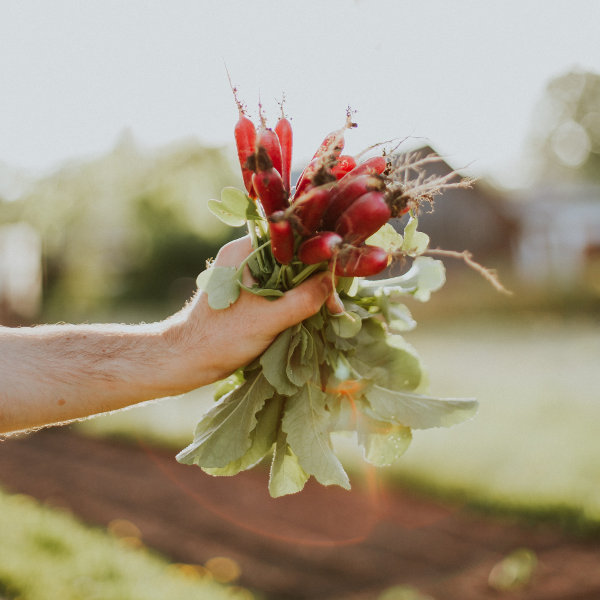Food
Food Wastage
Every year on an average 7.6 million tonnes of food is wasted in Australia equalling to 312 kg per person worth around $2000-$2500 per household per year. Food waste has a range of hidden costs, including:
- The water used for growing them which is about 25% of water used in agriculture.
- The land cleared of forests to grow food.
- The resources such as fertilisers and food to grow them to the harvest stage
- The greenhouse gas released during the production cycle
- The fuel usage in transport from production site to its final destination
- The transport and storage emissions it has caused
- The emissions from food waste degradation -accounts to 3% of Australia’s GHG emissions
Did you know Australians throw away
tonnes of food every year?
RETHINK FOOD WASTE
Ten tips to cut kitchen food waste
GROW YOUR OWN
Whether you have a small balcony or a sprawling backyard, there is space to grow food. Herbs in boxes, fruit trees in pots or a big veggie plot. If you don’t know where to start, contact your local community garden, you could lease a plot or just learn from the experts.
BUY LOCAL AND SEASONAL
Locally grown food reduces the emissions associated with transport across the country or the world. Food produced in season locally will be naturally more delicious. Seasonal produce should also be cheaper because it’s in abundance.
PLAN YOUR MEALS
Buy what you need! Reduces food spoilage and wastage. It’s a great way to save money. Shop to a list and only buy what you need, check the cupboard and fridge before you leave the house.
STORE FOOD CORRECTLY
You’ve planned your meals and shopped to a list; now ensure you store your food correctly so it doesn’t spoil before you use it.
CHECK EXPIRY DATES
Keep an eye on when the food in your pantry and fridge are set to expire. Plan to eat them before they spoil or freeze them for future use. Also note that ‘Use Before’ and ‘Best Before’ are two separate terms; food does not necessarily need to be thrown out after a ‘Best Before’ date if they are still edible especially fruit and vegetables, dry ingredients etc. Take care with meat and dairy products.
EAT ALL THE BITS!
Bread crusts broccoli stalks, beetroot leaves and potato skins are often chopped off and thrown away, but they’re perfectly fine to eat directly or used as an ingredient to the recipe.
MAKE LEFTOVERS LAST
Leftovers are a great resource, whether re-invented for a meal the next day or frozen for a few weeks’ time, don’t let them go to waste. Alternatively, plan your portions to eliminate leftovers altogether.
GET INVENTIVE ABOUT FOOD
There are lots of creative ways to save your food, preserve them in different forms such as stocks, jam, pickle, soups, dehydrate etc. are a few techniques.
FOOD WASTE HANDLING
Food waste should go back to the soil for more food production and close the loop of nutrients contained in them and not let it go to landfill. It accounts for about half of all rubbish sent to landfill. Food waste can be fed to chickens, composted, dug into the garden soil or give it to whoever can convert them to a fertiliser. Aim for no food waste going in the council collection bin! Check rewards for residents for some great savings on compost bins.
Start Your Own Food Garden
- Be creative – convert all spaces available to a garden.
- Use different methods- hydroponics, vertical gardening, container planting.
- Make gardening a daily activity - improves mental and physical health .
- Involve all in the house/community – social development and improves family bonding.
- Recycle and reuse – urban gardens can recycle organic waste.
- Repurpose household items as planting pots.
- Learn from each other and share the produce.

Switch to Urban Food Production
- Be creative – convert all spaces available to a garden.
- Use different methods- hydroponics, vertical gardening, container planting.
- Make gardening a daily activity - improves mental and physical health .
- Involve all in the house/community – social development and improves family bonding.
- Recycle and reuse – urban gardens can recycle organic waste.
- Repurpose household items as planting pots.
- Learn from each other and share the produce.
Other Ways to Switch
Learn about more ways you can switch your thinking and live a more sustainable lifestyle.
